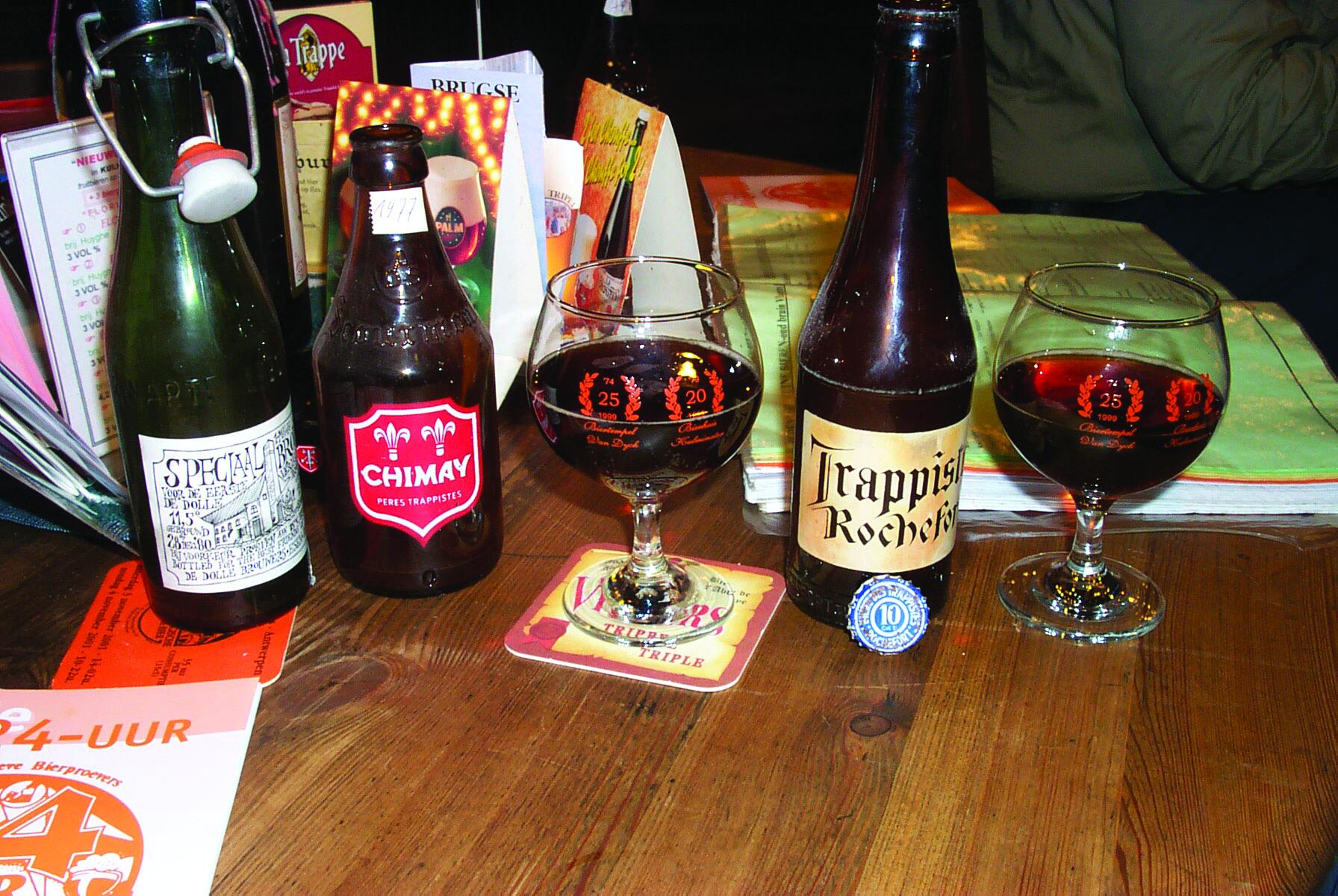Aged beer? The very concept of deliberately aging a beer contradicts everything we hear and see in beer ads. One megabrewery touts its “born on date” to encourage people to buy its beer. Local micros stress that fresh beer is the best beer.
While many cafés in Belgium do have a cellar with aged beers available, this fact is not always advertised.

(Brian J. Watson)
With the majority of beer styles, fresher is indeed better. Most of the beer drunk in this country is mass produced lager which has about 4 to 5 percent alcohol by volume (abv). Such beers will indeed suffer with a few months of age. But there are many beer styles which will improve with age, due to a number of factors.
Higher alcohol content is one of these factors. Alcohol is a preservative, so stronger beers will stand the test of time much more gracefully than beers with less alcohol.
Bottle conditioning–the practice of leaving live yeast in the beer when it is bottled–also makes beers good candidates for aging, since the yeast continues to develop the beers over time.
Aging and cellaring beer has grown very popular in the United States in perhaps the past ten years or so. Many good American beer bars now carry a few aged beers. The Map Room in Chicago, Brickskeller in Washington, D.C., Falling Rock Taphouse in Denver, Max’s on Broadway in Baltimore and the Toronado in San Francisco usually have more than a handful, with about 50 or more at last count on the menu at the Brickskeller. There are a number of other places with good vintage selections.
But if you have the taste for aged beer, your destination has to be Belgium.
Belgium has a long tradition of producing bottle conditioned beers, like lambic and gueuze, strong ales, and other beers that will improve with age if cellared properly. And, since breweries dotted all around the country produce world class beers with aging potential, beer lovers can often rely on local beer cafés to have great beers for them. They don’t need to spend time and effort cellaring beer, as it is done for them. With so many specialty beer cafés all around Belgium, there are usually a lot of very good choices to be had.
While many cafés in Belgium do have a cellar with aged beers available, this fact is not always advertised. At such places, inquiring and showing an interest in beer beyond that of a typical tourist will help convince the owner to let you in on what aged treasures may reside in the cellar. (Bringing some good quality beers from home to trade never hurts either, if you really want to make an impression!)









